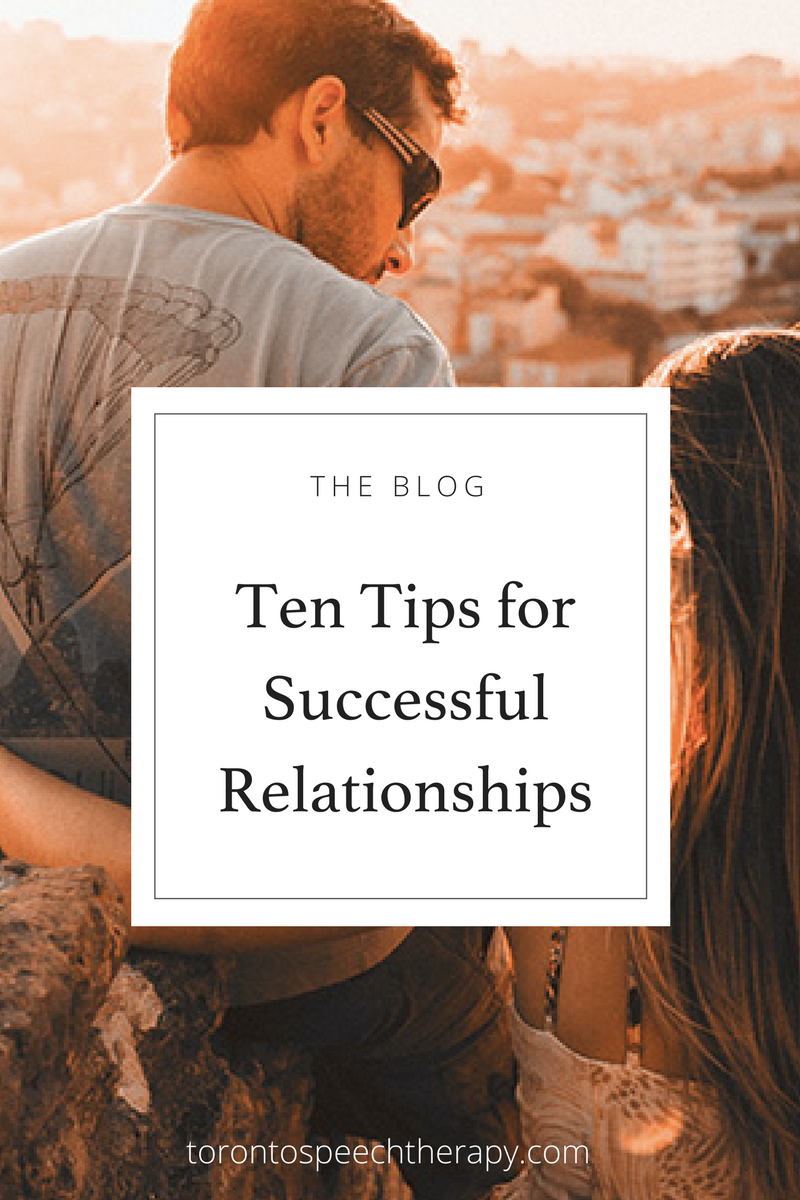Ten Tips for a Successful Romantic Relationship
Written by: Lindsay Daniels / Couples Communication / February 14th, 2018
Are you in a longterm relationship that has passed the honeymoon phase?
You love your partner but like any relationship, it likely has its challenges.
Healthy relationships require work. We know that the cornerstones of a healthy and successful romantic relationship are compromise and communication.
Of course, every relationship will have its ups and downs. But no matter which phase of your relationship you are in, the information shared in this blog can be applied.
Here is a list of our top ten tips for a successful romantic relationship.
Have a Shared Sense of Humour
Perhaps you both enjoy watching The Office or enjoy certain stand-up comedians. Having your own shared sense of humour, or "inside jokes" with your partner is a wonderful way to establish and maintain a bond. It's also a great way to ensure you continue to have fun and to laugh in your relationship. Laughter is the best medicine.
Respect your partner's time
This relates to being punctual if you've made a plan, because being consistently late sends the message that their time is not important. Respecting your partner's time also relates to understanding that they need time outside of your relationship for their other endeavours and commitments such as work, friends, family, and simply alone time.
Respect your partner's Privacy
No matter how long you've been in a relationship, you and your partner each have the right to have personal space and privacy at times. For example, it's not a good idea to go through your partner's purse, read through their texts, or to answer your partner's phone on their behalf.
Establish Trust
While trust is developed over time, it's important to ensure right from the beginning that your partner exhibits trustworthy qualities. If you have doubts about whether or not to trust your partner, there could be a problem. If you trust your partner, then respecting their privacy should be easy.
Practice Active listening skills
Active or attentive listening means knowing when to put the phone away and listen with more than just your ears. Listening doesn't only mean being able to regurgitate the last sentence the person said. Eye contact shows interest and respect. When your partner is telling you about their day, or sharing something that has been on their mind, these are the moments to prioritize a meaningful connection.
Don't Try to Change Your Partner
Of course when it comes to the little things, like being considerate about cleaning up in a shared space, it's reasonable to suggest small changes. This is where compromise is relevant. However, when it comes to the larger pillars of someone's personality, it's unhealthy to actively try to elicit significant change. It's important to love your partner for who they are.
Do Not Argue over text
Texting can be a convenient way to touch base during a busy day, or to confirm a time and place to meet, however more serious or meaningful conversations are best not had over text.
More than 60% of communication is non-verbal, meaning our tone, delivery, body language, and eye contact. Nuanced communication cues like sarcasm cannot always be successfully conveyed over text. Therefore, there is a higher chance of a misunderstanding occurring, or at the very least, a less effective conversation than if you opt for an in-person chat. If you sense an argument unfolding, suggest you and your partner "hit pause" until the next appropriate opportunity to speak face-to-face.
Nuture your Shared Interests
Whether you share an interest in music, movies, sports, travel, or anything in-between, it's important to dedicate time to enjoying these hobbies together. These types of shared interests act as a glue that strengthens the emotional bond in a relationship. Similarly, a lack of shared interests can result in more and more time spent having fun separately, which can lead couples to grow apart over time.
It's worth mentioning that compromise might be necessary here too. If your favourite band is in town one weekend and your partner attends the concert with you, it might be nice to reciprocate by asking your partner what they would most prefer doing the following weekend.
Be Honest
This might seem straight-froward, but honesty refers to more than simply not lying to your partner. If they have done something that you don't like, or if you are having concerns about something to do with your relationship, tell them. If they don't know it's bothering you, they can't fix it.
Communicate!
Again, this may seem straight-forward, and it is similar to practicing honesty, but this also refers to communicating your love and appreciation for your partner. It's important to remind your partner why you love them, from time-to-time. Be loving, giving, and generous when communicating with your partner. Let them know the ways in which they make your life better, the ways in which they make you happy. This will ensure your partner feels valued and appreciated and it feels great to give a meaningful complement to someone you care about.
If you suspect your relationship could use a tune-up, the communication experts are here for guidance and support. Give us a call (647-795-5277) or send us an email: lindsay@torontospeechtherapy.com and we can set you and your partner on the path to a stronger relationship.










Apraxia is a neurological condition, where a person is unable to do a task intentionally, even though they do not have any muscle weakness or incoordination. Apraxia is caused due to damage in the areas of the brain that are responsible for motor planning and motor execution. Because of this, people with Apraxia find it difficult to perform a task when instructed.